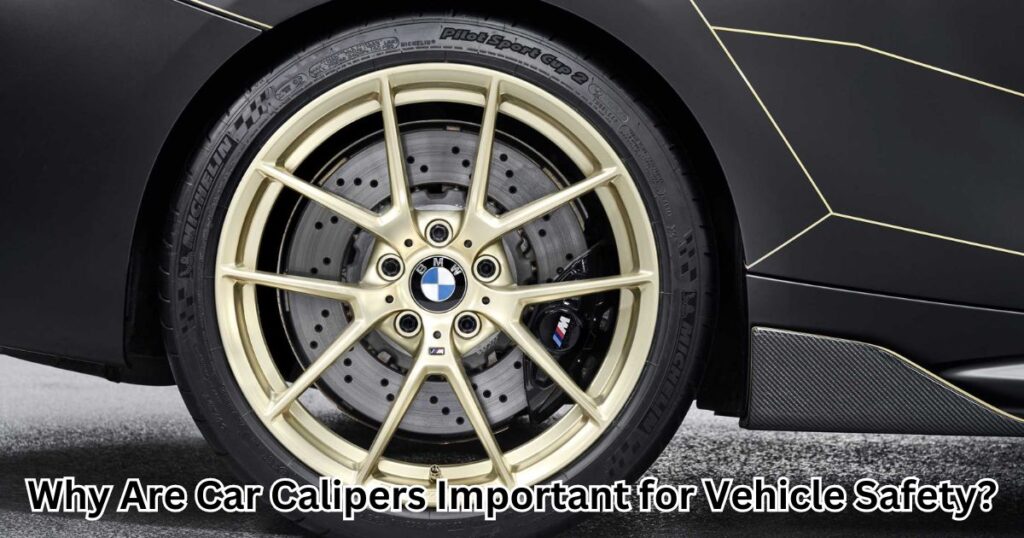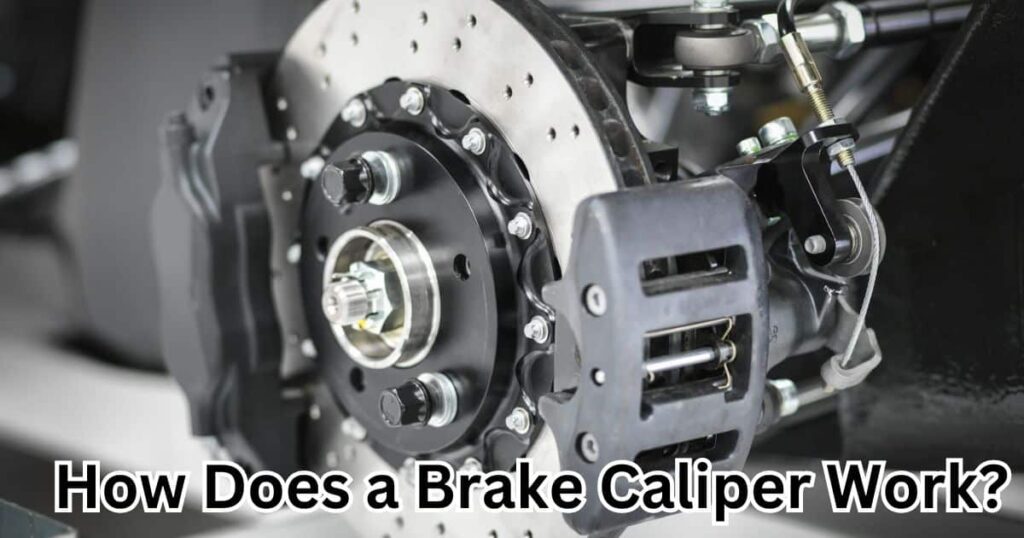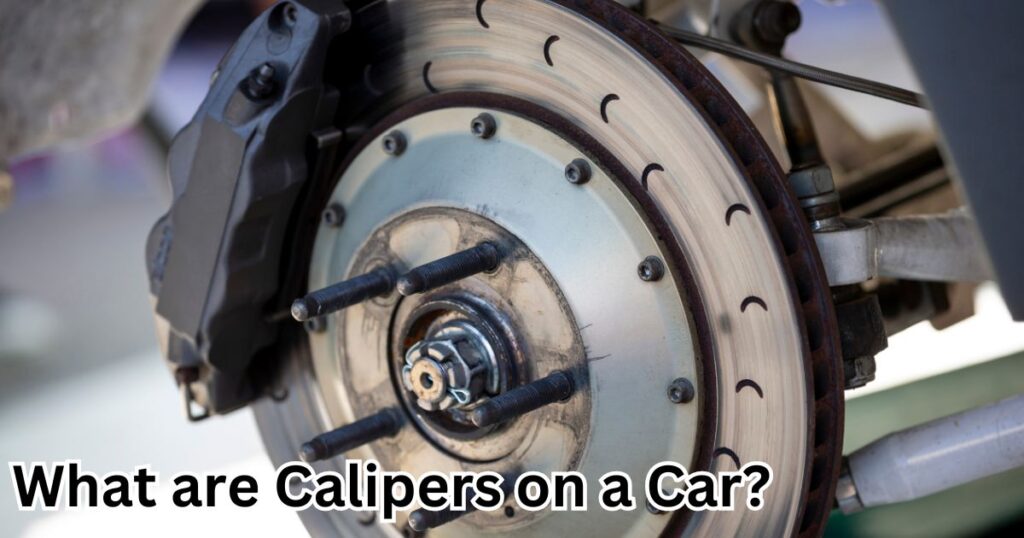When it comes to your car’s braking system, few components play a more crucial role than the calipers. These unassuming devices are the unsung heroes responsible for bringing your vehicle to a safe and controlled stop. In this comprehensive guide, we’ll delve into the world of car calipers, exploring their function, importance, and everything you need to know about maintaining them.
Understanding Car Calipers: A Comprehensive Guide
Calipers are an essential part of a car’s disc brake system, which is found on most modern vehicles. This guide will cover the following topics:
- What car calipers are and how they work
- The role calipers play in your car’s braking system
- Different types of calipers and their pros and cons
- Why calipers are critical for vehicle safety
- A beginner’s guide to understanding caliper function
- How calipers ensure safe and efficient braking
- Tips and tricks for maintaining your car’s calipers
- Common symptoms of a bad caliper and what to watch out for
By the end of this guide, you’ll have a thorough understanding of these unsung heroes of your car’s braking system.
What Are Car Calipers and How Do They Work?
Car calipers are hydraulic clamps that squeeze the brake pads against the rotating brake discs (rotors) when you press the brake pedal. This friction between the pads and rotors is what slows down and eventually stops your vehicle.
Here’s a simple analogy to help visualize how calipers work: Imagine you’re trying to stop a rolling wheel with your hands. You could press your hands against the sides of the wheel, creating friction that would gradually slow it down and bring it to a stop. Calipers perform a similar function, but with much greater force and precision.
When you press the brake pedal, it sends hydraulic pressure (brake fluid) through the brake lines to the calipers. This pressure forces the caliper pistons to extend, clamping the brake pads against the spinning rotors. The harder you press the pedal, the more forcefully the calipers clamp down, creating more friction and stopping power.
The Role of Calipers in Your Car’s Braking System
Calipers are the critical link between the hydraulic force created by your brake pedal and the actual slowing and stopping of your vehicle’s wheels. They work in tandem with other brake components, such as:
- Brake pads: These are the friction materials that make direct contact with the rotors, wearing down over time.
- Brake rotors: The large metal discs that rotate with the wheels, providing a surface for the pads to grip.
- Brake fluid: The hydraulic fluid that transfers the force from your pedal to the calipers.
Without properly functioning calipers, your car’s braking system would be rendered ineffective, compromising your safety on the road.
Car Calipers Explained: Everything You Need to Know
There are several different types of calipers used in modern vehicles, each with their own advantages and drawbacks:
- Fixed Calipers: These calipers are mounted rigidly to the suspension, with one or more pistons on a single side. When engaged, they clamp the inner brake pad against the rotor.
- Pros: Simple design, low maintenance, and cost-effective.
- Cons: Less even pad wear, potential for sticking or seizing.
- Floating/Sliding Calipers: These calipers slide along a pair of pins or bolts, allowing pistons on both sides to clamp the pads against the rotor.
- Pros: More even pad wear, reduced potential for sticking.
- Cons: More complex design, higher maintenance requirements.
- Opposed/Radial Calipers: These calipers feature pistons on opposing sides that simultaneously clamp both pads against the rotor.
- Pros: Excellent braking force distribution, reduced brake fade.
- Cons: Complex design, more expensive, higher maintenance.
The type of caliper used in your vehicle will depend on factors such as cost, performance requirements, and the overall brake system design.
Why Are Car Calipers Important for Vehicle Safety?

Calipers play a critical role in ensuring your vehicle can stop safely and reliably, making them a vital component for your safety on the road. Here are a few key reasons why properly functioning calipers are so important:
- Braking Power: Calipers provide the necessary clamping force to slow and stop your vehicle effectively, especially in emergency situations.
- Control and Stability: Balanced and consistent braking from all four calipers helps maintain vehicle control and stability during deceleration.
- Accident Prevention: Faulty calipers can lead to increased stopping distances, putting you at a higher risk of collisions and accidents.
According to the National Highway Traffic Safety Administration (NHTSA), brake-related issues are a leading cause of vehicle crashes and injuries. Properly maintaining your car’s calipers is essential for mitigating these risks and keeping you safe on the road.
A Beginner’s Guide to Car Calipers and Their Function
If you’re new to automotive mechanics, understanding how calipers work can seem daunting at first. But don’t worry; we’ve got you covered with this beginner’s guide:
Imagine a simple clamp that can squeeze something between its jaws. Car calipers work on a similar principle, but with a few additional components:
- Caliper Housing: This is the main body of the caliper, which houses the pistons and brake pads.
- Pistons: These are the hydraulic pistons that extend and clamp the pads against the rotor when you press the brake pedal.
- Brake Pads: These are the friction materials that make direct contact with the rotor, slowing it down through friction.
- Brake Rotor: This is the large metal disc that rotates with the wheel, providing a surface for the pads to grip and create friction.
When you press the brake pedal, brake fluid is pushed into the caliper housing, forcing the pistons to extend and clamp the pads against the spinning rotor. The harder you press, the more clamping force is applied, creating more friction and stopping power.
It’s a simple yet ingenious system that allows your vehicle to slow down and stop safely, even at high speeds.
Car Calipers: An Essential Component of Your Brakes
By now, it should be clear that calipers are an essential component of your car’s braking system. Without them, your vehicle would be unable to stop effectively, putting your safety at risk.
But calipers don’t just play a passive role; they actively contribute to the overall performance and efficiency of your brakes. Here’s how:
- Consistent Braking Force: Calipers ensure that equal clamping force is applied to both sides of the rotor, providing consistent and balanced braking.
- Reduced Brake Fade: By evenly distributing the braking force, calipers help mitigate brake fade, which occurs when brakes become less effective due to heat buildup.
- Longer Pad Life: Properly functioning calipers promote even pad wear, maximizing the lifespan of your brake pads.
In short, calipers are the unsung heroes that keep your brakes performing at their best, ensuring safe and reliable stopping power every time you hit the pedal.
Read More About: The Ultimate Destination for Buick and GMC Enthusiasts in Youngstown, OH
How Car Calipers Ensure Safe and Efficient Braking?
Now that we’ve covered the basics of what calipers are and why they’re important, let’s dive deeper into how they actually work to ensure safe and efficient braking:
- Hydraulic Pressure Transfer: When you press the brake pedal, it creates hydraulic pressure in the brake fluid, which is transferred through the brake lines to the calipers.
- Piston Actuation: This hydraulic pressure forces the caliper pistons to extend outwards, clamping the brake pads against the spinning rotor.
- Friction Generation: The clamping force created by the pistons causes the brake pads to make contact with the rotor, generating friction that slows down the rotation of the wheels.
- Braking Force Modulation: The harder you press the brake pedal, the more hydraulic pressure is generated, increasing the clamping force and braking power applied by the calipers.
- Heat Dissipation: Calipers are designed to help dissipate the heat generated by the friction between the pads and rotors, preventing brake fade and ensuring consistent braking performance.
This intricate dance between hydraulic pressure, clamping force, and friction generation is what allows calipers to translate your simple foot press into a controlled and safe deceleration.
Maintaining Your Car Calipers: Tips and Tricks
Like any other component in your car’s braking system, calipers require regular maintenance to ensure optimal performance and longevity. Here are some tips and tricks to help you keep your calipers in top shape:
- Inspect Regularly: Visually inspect your calipers during routine maintenance or when changing brake pads. Look for signs of leakage, rust, or damage to the caliper body or pistons.
- Check for Sticking: Ensure that the calipers can move freely along their guide pins or sliders. Sticking or seizing can lead to uneven pad wear and reduced braking performance.
- Lubricate Properly: Use the recommended lubricant (often a high-temp brake grease) to lubricate the caliper pins, slides, and other moving parts. This helps prevent sticking and ensures smooth operation.
- Replace Brake Fluid: Follow your manufacturer’s recommended intervals for changing the brake fluid, as old or contaminated fluid can lead to caliper issues and impaired braking performance.
- Rebuild or Replace as Needed: If you notice significant leakage, sticking, or other issues with your calipers, it may be time to rebuild or replace them entirely. This is a job best left to a professional mechanic.
- Consider Upgrades: If you frequently drive in demanding conditions (e.g., heavy loads, towing, or performance driving), you may want to consider upgrading to higher-performance calipers designed for your specific needs.
By following these maintenance tips, you can help ensure that your car’s calipers continue to provide reliable and efficient braking for years to come.
From Function to Maintenance: All About Car Calipers
In this comprehensive guide, we’ve covered the ins and outs of car calipers, exploring their vital role in your vehicle’s braking system. Here’s a quick recap of the key points:
- Calipers are hydraulic clamps that squeeze the brake pads against the rotating rotors, creating the friction necessary to slow down and stop your car.
- Different types of calipers (fixed, sliding, and opposed) offer varying levels of performance, complexity, and maintenance requirements.
- Properly functioning calipers are essential for vehicle safety, braking power, control, and accident prevention.
- Calipers work by transferring hydraulic pressure from the brake pedal into clamping force on the pads, modulating the braking force as needed.
- Regular maintenance, including inspections, lubrication, and fluid changes, is crucial for keeping your calipers in top condition.
By understanding the importance of calipers and following the tips for maintenance, you can help ensure that your car’s braking system remains reliable and effective, providing you with peace of mind on the road.
How Does a Brake Caliper Work?

To fully appreciate the critical role calipers play in your car’s braking system, it’s helpful to understand the step-by-step process of how they operate when you press the brake pedal:
- Pedal Press: When you depress the brake pedal, it engages the master cylinder, which is filled with hydraulic brake fluid.
- Hydraulic Pressure: The force from the pedal creates hydraulic pressure in the brake fluid, which is then transmitted through the brake lines to the calipers.
- Piston Actuation: This hydraulic pressure enters the caliper housing and acts on the caliper pistons, causing them to extend outwards.
- Pad Clamping: As the pistons extend, they clamp the brake pads against the spinning brake rotor (disc) with tremendous force.
- Friction Generation: The clamping action causes the brake pads to make contact with the rotor, generating friction that slows down the rotation of the wheel.
- Braking Force Modulation: The harder you press the pedal, the more hydraulic pressure is generated, increasing the clamping force and braking power applied by the calipers.
- Heat Dissipation: The friction between the pads and rotor generates a significant amount of heat, which the calipers help dissipate to prevent brake fade and maintain consistent braking performance.
- Release: When you release the brake pedal, the hydraulic pressure is relieved, allowing the pistons to retract and the pads to disengage from the rotor.
This intricate process happens almost instantaneously and is repeated thousands of times throughout the life of your vehicle, highlighting the critical role calipers play in ensuring safe and controlled deceleration.
What Are the Symptoms of a Bad Brake Caliper?
While calipers are designed to be durable and long-lasting, they can still experience issues over time or due to various factors. Being able to recognize the symptoms of a bad caliper is crucial for addressing potential problems before they compromise your safety on the road. Here are some common signs to watch out for:
Brake Fluid Leaks
One of the most obvious indicators of a caliper issue is a brake fluid leak. This can manifest as:
- Wet spots or puddles of fluid near the caliper or wheel area
- A low brake fluid level in the master cylinder reservoir
- A soft or “spongy” brake pedal feel
Leaks can occur due to worn or damaged caliper seals, pistons, or other internal components, allowing brake fluid to escape.
Car Pulls to One Side
If you notice your car pulling or veering to one side when braking, it could be a sign of a stuck or seized caliper. When one caliper fails to release properly, it causes uneven braking force, causing the car to pull in that direction.
Upsetting Sounds and Smells
Listen and smell for any unusual noises or odors coming from the brakes or wheel area, as these can indicate caliper issues:
- Grinding or squealing noises: These can signal stuck or damaged caliper pistons.
- Burning smells: A hot, burning odor may indicate overheated or dragging brake pads due to a stuck caliper.
Reduced Stopping Power
If you experience a noticeable reduction in your car’s stopping power or an increase in stopping distances, it could be due to a caliper issue. This can be caused by a sticking caliper not clamping properly or a caliper leak leading to reduced hydraulic pressure.
Brake Warning Light
In some cases, a caliper problem may trigger your car’s brake warning light on the dashboard. This is a clear indication that there’s an issue with the braking system that requires immediate attention.
Spongy or Soft Brakes
A “spongy” or “soft” brake pedal feel can be a symptom of various brake issues, including caliper problems such as air in the system or internal leaks.
Shaking or Vibration When Braking
If you experience shaking or vibration through the steering wheel or brake pedal when applying the brakes, it could be caused by warped rotors or uneven pad wear due to a sticking caliper.
If you notice any of these symptoms, it’s essential to have your calipers inspected and repaired or replaced as soon as possible to ensure your safety on the road.
By being aware of these warning signs and addressing caliper issues promptly, you can help prevent more serious and costly brake system failures down the line.
Read More About: 50 Basic Parts Of A Car With Name & Diagram
Conclusion
Calipers may be small and unassuming, but they play a vital role in your car’s ability to stop safely and reliably. Throughout this comprehensive guide, we’ve explored the inner workings of these essential components, their importance for vehicle safety, and the best practices for maintaining them.
Remember, properly functioning calipers are crucial for ensuring consistent braking force, reducing the risk of brake fade, and maximizing the lifespan of your brake pads. By following the tips and tricks outlined in this guide, you can help keep your calipers in top condition, giving you peace of mind every time you hit the road.
If you ever notice any symptoms of a bad caliper, such as fluid leaks, uneven braking, or unusual noises or smells, don’t hesitate to have your car inspected by a professional mechanic. Addressing caliper issues promptly can prevent more serious and costly problems down the line, ensuring your safety and the longevity of your car’s braking system.
Safe driving starts with well-maintained brakes, and calipers are the unsung heroes that make it all possible. By understanding and properly caring for these crucial components, you can enjoy a smoother, safer, and more confident driving experience for years to come.

